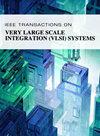High-Speed Compute-Efficient Bandit Learning for Many Arms
IF 3.1
2区 工程技术
Q2 COMPUTER SCIENCE, HARDWARE & ARCHITECTURE
IEEE Transactions on Very Large Scale Integration (VLSI) Systems
Pub Date : 2025-06-03
DOI:10.1109/TVLSI.2025.3573924
引用次数: 0
Abstract
Multiarmed bandits (MABs) are online machine learning algorithms that aim to identify the optimal arm without prior statistical knowledge via the exploration-exploitation tradeoff. The performance metric, regret, and computational complexity of the MAB algorithms degrade with the increase in the number of arms,多兵种高速计算高效强盗学习
Multiarmed bandits (mab)是一种在线机器学习算法,旨在通过探索-开发权衡,在没有事先统计知识的情况下识别最佳手臂。MAB算法的性能指标、遗憾率和计算复杂度随着臂数K的增加而降低。在无线通信、雷达系统和传感器网络等应用中,K(即天线、波束、频带等的数量)预计会很大。在这项工作中,我们考虑了基于重点探索的MAB,它在大K下优于传统的MAB,并通过硬件软件协同设计(HSCD)和固定点(FP)分析将其映射到各种边缘处理器和片上多处理器系统(MPSoC)上。所提出的架构可以减少67%的平均累积遗憾,在边缘处理器上减少84%的执行时间,使用基于fpga的加速器减少97%的执行时间,并且在K=100美元时,比最先进的mab节省10%的资源。
本文章由计算机程序翻译,如有差异,请以英文原文为准。
求助全文
约1分钟内获得全文
求助全文
来源期刊
CiteScore
6.40
自引率
7.10%
发文量
187
审稿时长
3.6 months
期刊介绍:
The IEEE Transactions on VLSI Systems is published as a monthly journal under the co-sponsorship of the IEEE Circuits and Systems Society, the IEEE Computer Society, and the IEEE Solid-State Circuits Society.
Design and realization of microelectronic systems using VLSI/ULSI technologies require close collaboration among scientists and engineers in the fields of systems architecture, logic and circuit design, chips and wafer fabrication, packaging, testing and systems applications. Generation of specifications, design and verification must be performed at all abstraction levels, including the system, register-transfer, logic, circuit, transistor and process levels.
To address this critical area through a common forum, the IEEE Transactions on VLSI Systems have been founded. The editorial board, consisting of international experts, invites original papers which emphasize and merit the novel systems integration aspects of microelectronic systems including interactions among systems design and partitioning, logic and memory design, digital and analog circuit design, layout synthesis, CAD tools, chips and wafer fabrication, testing and packaging, and systems level qualification. Thus, the coverage of these Transactions will focus on VLSI/ULSI microelectronic systems integration.

 求助内容:
求助内容: 应助结果提醒方式:
应助结果提醒方式:


